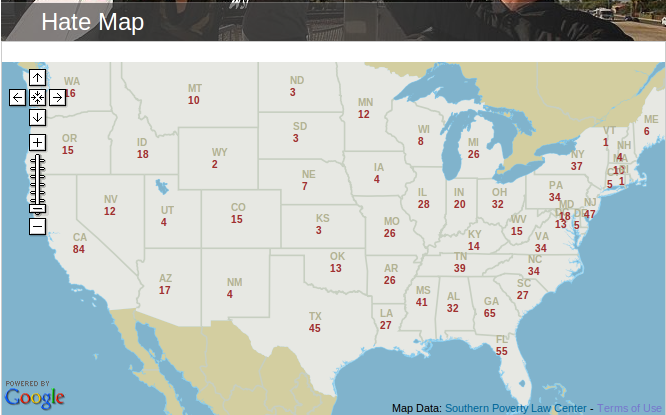Guest post by Suzie Mulesky.
Humanitarian Crisis at the Southern Border
During the longest-running US government shutdown, President Trump and other Republicans made numerous references to the plight of female migrants, depicting them as victims of human traffickers and widespread sexual violence. Sen. Ron Johnson (R-Wis.) reported during a Senate hearing that, “Amnesty International estimated in 2010, 60 percent of young women making that journey are raped.” This statistic also emerged in the news coverage of Trump’s speeches as well as analysis by political scientists.
The claim sparked a flurry of fact checking, revealing the surprising source of such dubious claims: human rights and humanitarian NGOs. This essay explains why it took a contentious claim by a politician to invite scrutiny of human rights reporting and why, in general, people trust information produced by human rights NGOs, despite a low standard of evidence in the underlying research.
Fact Checking Amnesty International
A fact checker at The Washington Post wondered, how did Amnesty come up with the 6 in 10 figure? What he uncovered was the fascinating evolution of a mythical statistic. In 2010 Amnesty reported, “It is a widely held view – shared by local and international NGOs and health professionals working with migrant women – that as many as six in 10 migrant women and girls are raped.” Amnesty’s footnote to this claim cites a 2002 report for the United Nations Population Fund, which cites a 1998 book: “A study of migrants estimates that 60 percent of the illegal female migrants have some sort of sexual experience in their trip toward the U.S.: from rape or coerced sexual relations, to a lover.”
While the book does not cite a source for the study, one of the authors told The Washington Post that he believes the statistic comes from a 1995 study by Olivia Ruiz referenced in the book’s bibliography. However, the 1995 study does not make any reference to sexual violence against migrants, and Ruiz did not respond to the Post for comment.
In the end, we don’t actually know the origin of Amnesty’s 60 percent rape statistic. This isn’t an isolated incident either. NPR’s coverage of Chris Bobel’s work reveals that mythical statistics about women’s menstruation fuel the work of charities in the menstrual health sector. Dara Kay Cohen and Amelia Hoover Green similarly debunked a popular United Nations claim that 75% of Liberian women and girls were raped, a statistic that Amnesty International and several media outlets regularly repeated. Kathryn Moeller recently reported about another ghost statistic cited by NGOs, governments, and foundations, that women spend 90% of their income on their children, while men only spend 30-40%.
According to interviews I conducted with former high-level staff at Amnesty, some—including a former member of the Board at Amnesty International Netherlands—trust the US State Department’s human rights country reports more than Amnesty’s research, arguing that the State Department’s reports are more “methodologically rigorous” and “more systematic, consistent, and balanced.”
Was Amnesty’s amplification of a fabricated statistic intended to raise awareness or raise money? My dissertation argues for the latter by way of the former. How NGOs respond to market pressure follows a straightforward story about market incentives, competition, and supply and demand. Human rights NGOs like Amnesty simply supply what their consumers (donors) demand. If they fail to deliver, donors will shop elsewhere.
Social Signaling
Why do donors want to consume information that has not been carefully vetted? If donors care about the facts of human rights violations, wouldn’t they have a financial interest in donating to organizations with the most accurate reporting?
Not necessarily. Accurate reporting isn’t an important concern for most donors because when they donate, they are not motivated to produce public benefits. Instead, they primarily want to receive private, reputational benefits, namely social status and prestige.
Research on altruistic signaling spans multiple research fields, including biology, social and moral psychology, and economics. When people engage in prosocial behavior, they receive status benefits, not for the consequences of their action on welfare outcomes, but for what the action signals about their underlying socially desirable traits. Donors, then, are socially rewarded for their conspicuous displays of charity rather than for the effect of their charity on the stated beneficiaries. More important to donors is being seen donating to charity.
Human rights NGOs, in turn, participate in a transactional relationship with their donors: in exchange for donors’ contributions, the organizations provide a “signaling service” by working on causes and programs that help donors signal their socially attractive qualities.
When donors receive social credit for caring about victims of widespread human rights abuses, the veracity of the claims matter less than being seen as the kind of person who cares about a certain group. Intentions are more important when people make character evaluations about each other. What matters when third parties evaluate one’s character is conspicuously displaying that one cares about a vulnerable group, in this case female migrants. As long as the NGO delivers this product by publishing reports about the plight of female migrants, donors will be satisfied, even—nay especially—if the reports publish scary-sounding statistics. The NGO does not need to slow its publication rate by carefully vetting every statistic. The information, instead, needs to be timely and newsworthy, providing donors with a healthy dose of confirmation bias.
Suzie Mulesky is a PhD Candidate in Political Science and International Relations at the University of Southern California and Visiting Scholar at Indiana University’s Ostrom Workshop.







1 comment